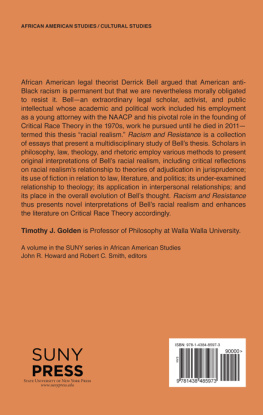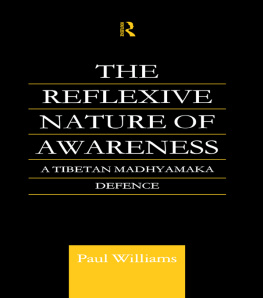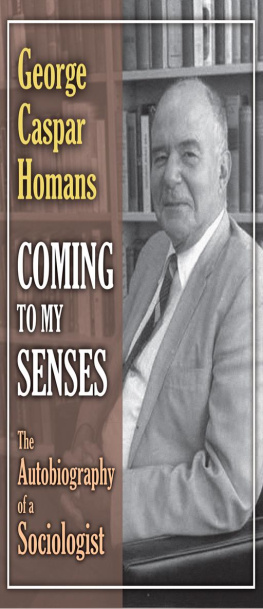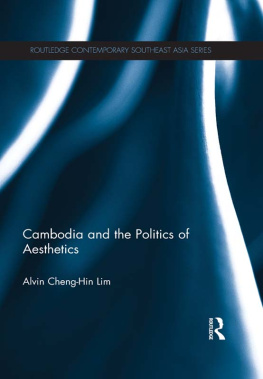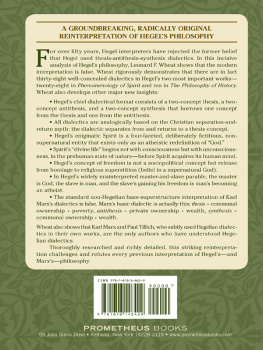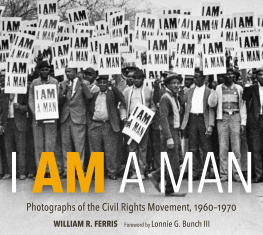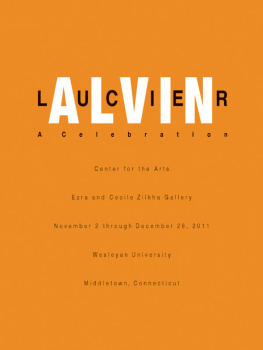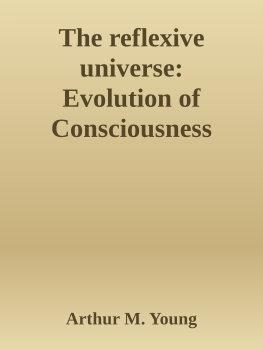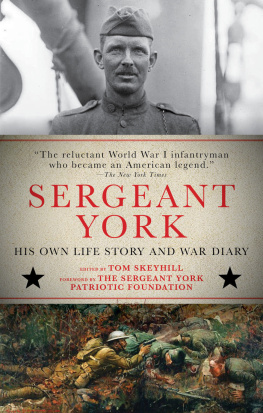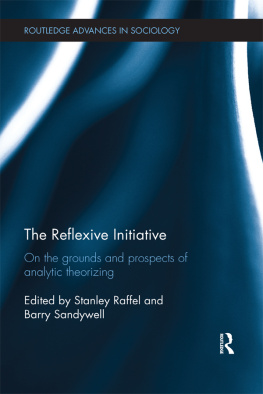ALVIN W. GOULDNER: SOCIOLOGIST AND OUTLAW MARXIST
First published 1999 by Ashgate Publishing
Reissued 2018 by Routledge
2 Park Square, Milton Park, Abingdon, Oxon, OX14 4RN
711 Third Avenue, New York, NY 10017, USA
Routledge is an imprint of the Taylor & Francis Group, an informa business
Copyright James J. Chriss 1999
All rights reserved. No part of this book may be reprinted or reproduced or utilised in any form or by any electronic, mechanical, or other means, now known or hereafter invented, including photocopying and recording, or in any information storage or retrieval system, without permission in writing from the publishers.
Notice:
Product or corporate names may be trademarks or registered trademarks, and are used only for identification and explanation without intent to infringe.
Publisher's Note
The publisher has gone to great lengths to ensure the quality of this reprint but points out that some imperfections in the original copies may be apparent.
Disclaimer
The publisher has made every effort to trace copyright holders and welcomes correspondence from those they have been unable to contact.
A Library of Congress record exists under LC control number: 99071888
ISBN 13: 978-1-138-31480-1 (hbk)
ISBN 13: 978-0-429-45668-8 (ebk)
Over the course of researching and writing this book on Alvin Gouldner, I heard from a number of his friends and colleagues who overwhelmingly agreed that, indeed, a book on his life and times was long overdue. But they were also virtually unanimous in the sentiment that I should concentrate on his ideas, not his private life.
This sentiment bothered me. It bothered me because the notion that one can or should separate a man's ideas from the life he led seemed to me to be as nave as the positivistic conceit that the "facts" speak for themselves, and that there is no intrinsic connection between theories and the theorists who formulate them. Why would anyone want to examine Gouldner's ideas without also attempting to tell a story about the life he led, about the type of person he was? Is it because, as one person told me (who shall remain nameless), it would "open old wounds"? This is apparently one of the reasons it took so long for a book to appear about an author as important and influential as Gouldner: those who possessed knowledge about Gouldner's work were also likely to have known him during his lifetimewhether as friend, family, student, colleague, or some combination of theseand thus were in a position to report on Gouldner's deeply tragic persona, one characterized as hostile, belligerent, bombastic, confrontational, intolerant, mean, and injudicious. Gouldner went beyond the generally tolerable level of the irascible scholar; by all accounts he was an outright bully who threw his weight around whenever he felt the urge (which was often). Maybe the reality of Gouldner's "difficult" demeanor caused many who were close to him, or knew of him, to shy away from an exposition of his ideas because it would bring them perilously close to an examination of the whole person, whether they wanted to or not. Imagine a "serious" or "scholarly" work on Gouldner that did not even hint at the kind of person he was. Perhaps one could go the route of Irving Horowitz (1983), whose intellectual biography of C. Wright Mills deals with Mills' own difficult personality only in passing. As Horowitz (1983, pp. 4-5) explains,
Of the many people I met, talked with, and corresponded with, very few mustered positive sentiments toward Mills....My own approach has been to minimize the significance of these personal elements, to ignore rather than affirm or deny their importance. The justification for this approach, apart from a deep belief that often apocryphal stories add little to our fund of information on Mills, is that they may actually detract from our sense of Mills as social scientist, political actor, and American utopian.
We are all free of course to choose our own approaches to various subjects and materials. But I find Horowitz's approach sterile, caught up as he is in the notion that ideas are what really matter. Ideas do matter, but they matter a lot less when divorced from the very real flesh-and-blood human beings that give them life, that animate them. Horowitz reminds me of the POW who, when pressed by his captors for more information about the operation, ritually invokes name, rank, and serial number, but is unable to confirm or deny anything else.
This is an admirable show of patriotism and military bearing, but we in the social sciences are not POWs. We need not hold our cards so close to the vest. This is not a strategic operation. We are not the guardians of some ancient and deep secrets. Horowitz's position is elitist, but even worse, it mystifies social life, making it appear that the object of his study somehow transcends the hurdy-gurdy of everyday life. Gouldner was a man, a deeply flawed man, with some very real intellectual gifts. If one does not have the stomach to deal with the man and his ideas, warts and all, so be it. This preface is a forewarning that I will be dealing with some of the unpleasant realities of Gouldner's life as a man. More importantly, in order to understand Gouldner's ideas, one must understand how and why he engaged in the very real battles, the agonic struggles, that characterized much of his professional life. In this sense, there is an interesting and important story to tell.
For the record, I did not know Gouldner. I entered academia a good decade after Gouldner's death. In fact, I stumbled upon Gouldner's work almost by happenstance. I attended Virginia Tech during 1989-90, working on my master's in sociology. My thesis was originally planned as a study of Talcott Parsons, specifically, an attempt to de-Freudianize Parsons. (This has yet to transpire, but is still on the back burner.) There was to be a large biographical component to the work, but in the midst of gathering details about Parsons' life I received word of a then recently published book, by Bruce Wearne (1989), that had already covered much of the same ground I was planning to cover. Since the Parsons industry seemed so thoroughly saturated at that time, my thesis advisor, Ellsworth Fuhrman, suggested that I shift the focus away from Parsons per se and towards criticisms of Parsons, which appeared to be a fruitful area for continuing research. He suggested doing something on Alvin Gouldner, concentrating on his critique of Parsons and academic sociology that appeared in The Coming Crisis of Western Sociology. It just so happened that along with Fuhrman, Tim Luke, in the political science department, was also quite familiar with Gouldner's work. (To this day I still don't understand or remember why Luke did not end up on my thesis committee. Perhaps I didn't even ask him.) With a supportive infrastructure in place to pursue a theoretical thesis, I ended up examining Gouldner's crisis thesis, specifically in regard to his hypothesis that Parsons' influence would decline concomitant to the rise in influence of Goffman, Homans, and Garfinkel.
This was about nine years ago. Since that time, I went on to Ph.D studies at the University of Pennsylvania, where I concentrated much more on the writings of Erving Goffman than on Gouldner. But no matter how far I thought I had left Gouldner behind, he was always there, buried deep within the infrastructure of my ongoing theoretical work. Once Gouldner gets under your skin, it seems, it's difficult to forget him or turn your back on him.


